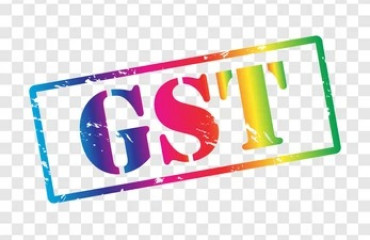
New Delhi: The interim budget for FY25 on Thursday announced an over seven-fold increase in allocation for the automotive industry's PLI scheme, but reduced the outlay for the Faster Adoption and Manufacturing of Hybrid & Electric Vehicles (FAME) scheme by over 44%.
New Delhi: The interim budget for FY25 on Thursday announced an over seven-fold increase in allocation for the automotive industry's PLI scheme, but reduced the outlay for the Faster Adoption and Manufacturing of Hybrid & Electric Vehicles (FAME) scheme by over 44%.
The FAME scheme launched in April 2015, is the umbrella programme of the government to promote electric and hybrid vehicles in the country. The first phase of the scheme ran till 2019 and the second phase ends in March this year.
In 2023-24, ₹5,171.97 crore was allocated for the scheme with revised estimates showing around ₹4,807.4 crore spent by the end of the fiscal year. In 2022-23, ₹2,402.51 crore was spent under the scheme. For the upcoming fiscal year, the allocation has been reduced to just ₹2,671.33 crore.
The government has increased the budget for the production-linked incentive scheme to support the domestic production of futuristic vehicle technologies in the country. The allocation has been raised from ₹483.77 crore in 2023-24 to ₹3,500 crore for 2024-25. Additionally, the budget for the PLI scheme for advanced chemistry cell and battery storage has been hiked from ₹12 crore to ₹250 crore in 2024-25.
The cut in allocation for FAME-II scheme comes on the back of a reduction in subsidy for electric two-wheelers last year. Following allegations that seven electric two-wheeler companies did not comply with the localization norms required to avail the subsidies under the scheme, the government slashed the incentive from ₹15,000 per Kwh of battery to ₹10,000 per Kwh from 1 June 2023. Electric scooters in the country typically have batteries ranging between 2 Kwh and 4 Kwh. Sales of electric vehicles in the country have gone off the boil since then.
"The imminent expiration of the FAME II subsidy program by March 2024 sparked hopes for its extension, aligning with the government's ambitious 2030 target of 30% electric vehicles on Indian roads. An extension would have solidified support for the EV industry. Furthermore, a substantial reduction in GST on lithium-ion battery packs and cells, from 18% to 5%, would have alleviated manufacturing costs, making EVs more competitively priced and boosting consumer adoption," said Chakravarthi C, managing director, Quantum Energy.
"The absence of a standardized policy for the battery-swapping market is also a missed opportunity. We look forward to the full budget where we hope these crucial aspects receive due consideration."
The increase in allocation for PLI scheme, however, would come as a relief. Nearly two years after it became operational, it was still stuck in limbo as the government is still working on standard operating procedures for claiming incentives. There were zero disbursals in the first year of the scheme and even in 2023-24, the actual disbursements are lower than the ₹604 crore budgeted at the start of the financial year in March last year.
Finance minister Nirmala Sitharaman in her interim budget speech did mention green mobility and electric vehicles on a few occasions in her hour-long speech on Thursday promising to strengthen and expand the ecosystem.
"Our Government will expand and strengthen the e-vehicle ecosystem by supporting manufacturing and charging infrastructure. Greater adoption of e-buses for public transport networks will be encouraged through payment security mechanism," she said.
The budget also said electric vehicles charging will get a boost from the mega rooftop solarization programme that seeks to provide 300 units of free electricity every month to one crore households.
"As the govt rolls out details of the scheme in the coming days for growing the EV public charging infrastructure, the availability of public chargers across the country will significantly grow and EV companies like ours will find higher market acceptance from its consumers and also attract investor interest," said Dinesh Arjun, co-founder and CEO, Raptee Energy.
"This will also break the 'range anxiety', the biggest barrier for EV adoption in our country. The government's support in providing financial assistance and support to EV manufacturing will encourage entrepreneurs to do deeper innovation in the battery management segment and other technologies."
